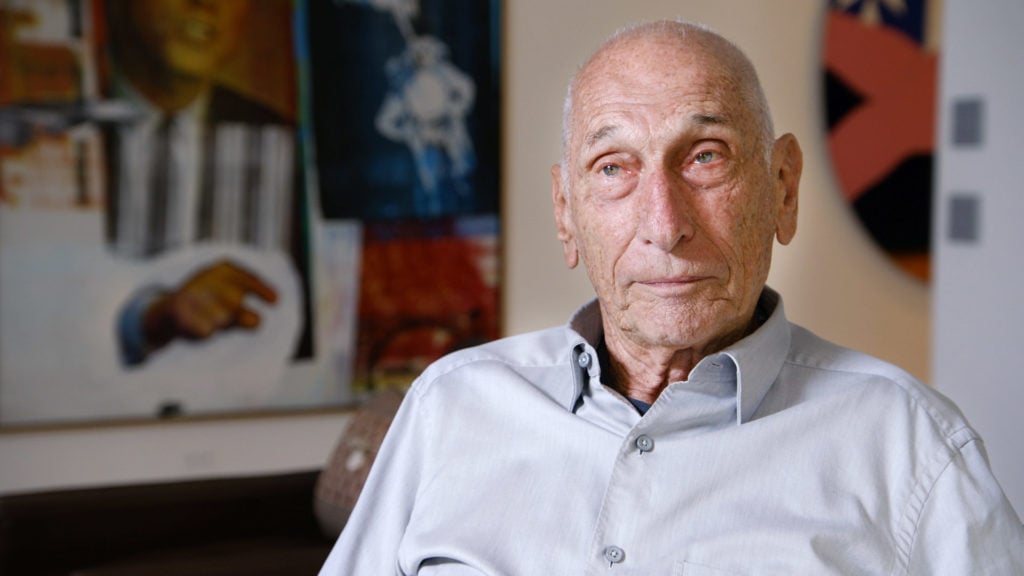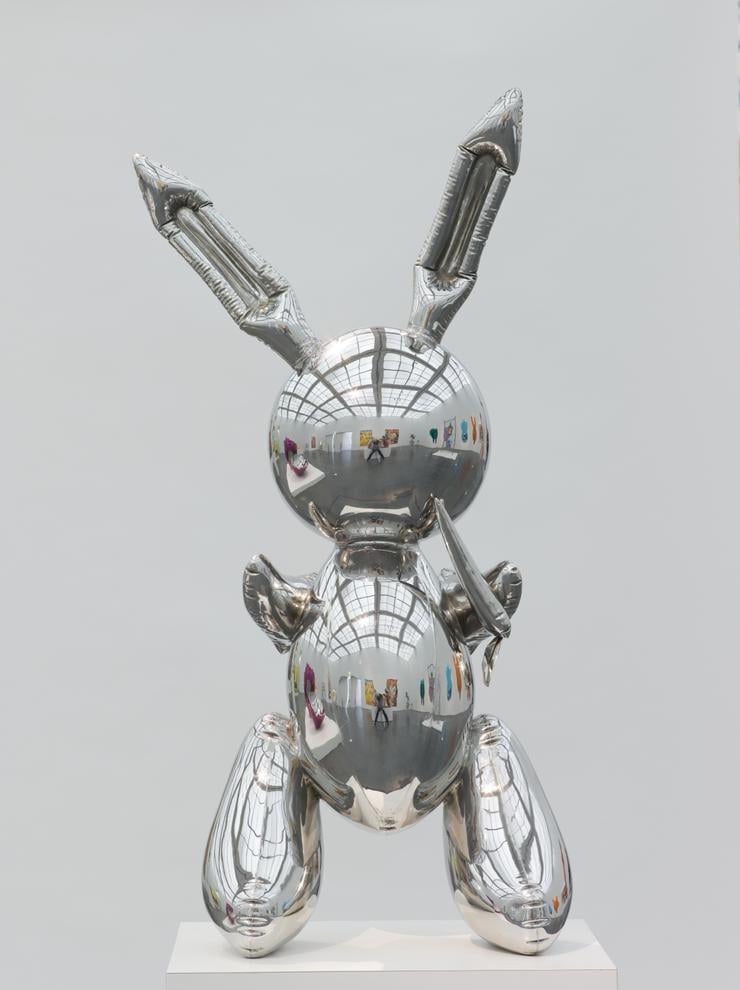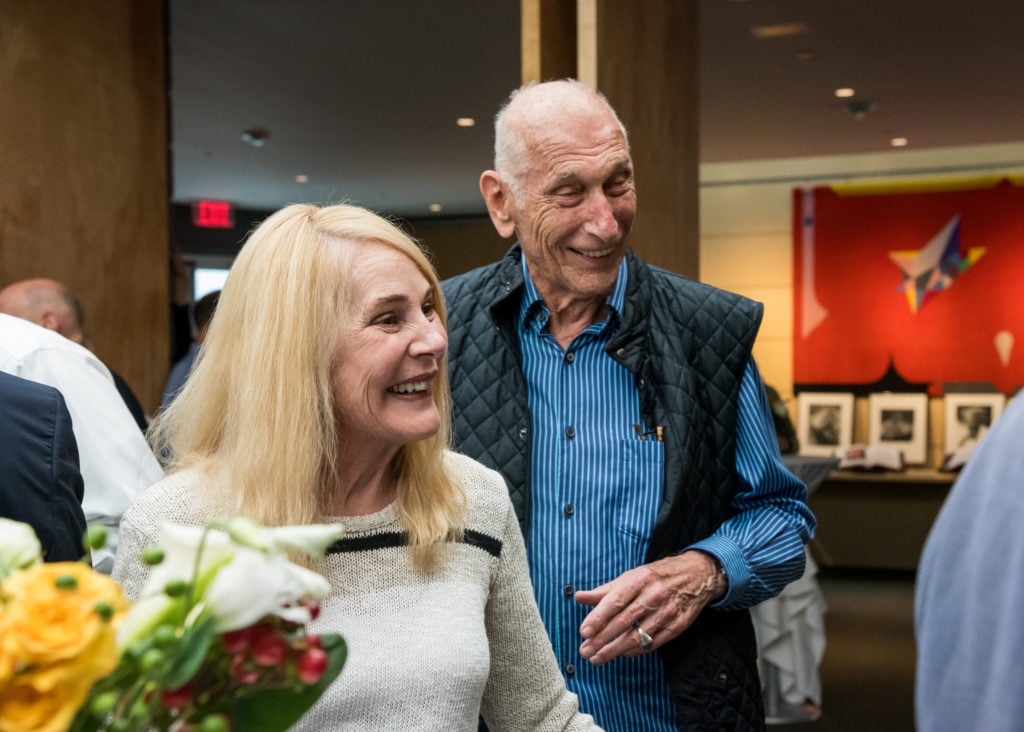People
Stefan Edlis, Who Went From Refugee to Eminent Art Collector and Museum Patron, Has Died at Age 94
Edlis was a major donor to Chicago art institutions.

Edlis was a major donor to Chicago art institutions.

Eileen Kinsella

Stefan Edlis, one of the nation’s most prominent museum donors and modern and contemporary art collectors, has died at age 94. The news was first announced by the Museum of Contemporary Art in Chicago, one of several important art institutions that benefited from the philanthropy of Edlis and his wife, Gael Neeson.
Edlis was born in Vienna in 1925. He and his family escaped Nazi persecution in 1941 when they came as refugees to the US. “When we arrived at the pier in Manhattan, my uncle was there, greeting me with a sandwich. And life was good,” Edlis told the Forward.
In 1965, Edlis founded Apollo Plastics in Chicago and soon was making enough money to begin collecting art. His earliest acquisitions were all made out of plastic, according to ARTnews, though he would eventually move on to collect some of the biggest names in recent art history, including Jeff Koons, Jasper Johns, Roy Lichtenstein, Robert Rauschenberg, Gerhard Richter, Cindy Sherman, Cy Twombly, and Andy Warhol, among others.
Edlis has been a trustee at the MCA Chicago since 1981 and was a vice chair of the museum’s when he died. In 2000, Edlis and Neeson made a partial donation to the museum of Jeff Koons’s stainless steel Rabbit (Edlis reportedly acquired the work for $945,000 in 1991; another version from the edition sold for a $91 million at Christie’s last year). The couple made another $10 million donation in 2012 to fund a new theater at the museum.

Jeff Koons, Rabbit (1986). Collection Museum of Contemporary Art Chicago, Partial gift of Stefan T. Edlis and H. Gael Neeson, 2000. Photo: Nathan Keay, © MCA Chicago
“Stefan Edlis was a superhuman being who influenced every great cultural institution in Chicago,” said MCA director Madeleine Grynsztejn in a statement. “Stefan’s involvement in the arts made his life bigger, and in turn, he made sure that art made other people’s lives bigger, and that is what we loved about him.”
In 2015, the couple donated 42 works by John Currin, Eric Fischl, Katharina Fritsch, Koons, and others, worth an estimated $500 million, to the Art Institute of Chicago. Edlis, who had expressed frustration in the past about donating works that were quickly whisked away to storage, made the gift with the condition that the works be kept on display for 50 years.
“I consider Stefan Edlis, along with his wife Gael Neeson, to be the Nobel Laureates of Chicago Philanthropy: They believe in investing in the culture of their community and the places they live and spend time,” said Art Institute director James Rondeau in a statement.

Stefan Edlis and Gael Neeson. Photo: Courtesy of the Aspen Institute via Flickr.
Edlis made a splash in the 2018 documentary about the art market The Price of Everything. During an interview amid his expansive collection at his home in Chicago, he detailed the extensive Excel spreadsheet system he used to keep track of his collection, and revealed that he often traded works rather than buy them with cash.
The couple adhered to a set of rules that informed their collecting habits, including that they would only own 200 works at a time by more than 40 artists, which hung in their Chicago and Aspen homes, according to ARTnews. Among the works they parted with over the years were Warhol’s Turquoise Marilyn, which they sold to hedge-fund billionaire Steven A. Cohen for $80 million in 2007, and Roy Lichtenstein’s The Ring (Engagement), which sold for $41.7 million at Sotheby’s New York in 2015.
“The art market marches to its own tune,” Edlis told the Chicago Sun-Times in 1988. “Anyone who tries to forecast it is doomed to fail.”
“He was outspoken, direct, and honest; he said what he thought even when he knew it would ruffle feathers. And, people forgave him, not just because of his age and the fact that he survived and thrived despite his birth in Nazi Austria, but out of respect for his keen intelligence, abiding humanity, selfless generosity, and his nearly unerring taste in art,” said Adam Weinberg, director of the Whitney Museum, to which Edlis was also a donor, in a statement. “Stefan and his beloved Gael were a legendary team. They shared an unmatched zest for life. And, together they built one of the finest contemporary art collections of our time by taking risks, believing in new artists, and making long-term commitments.”